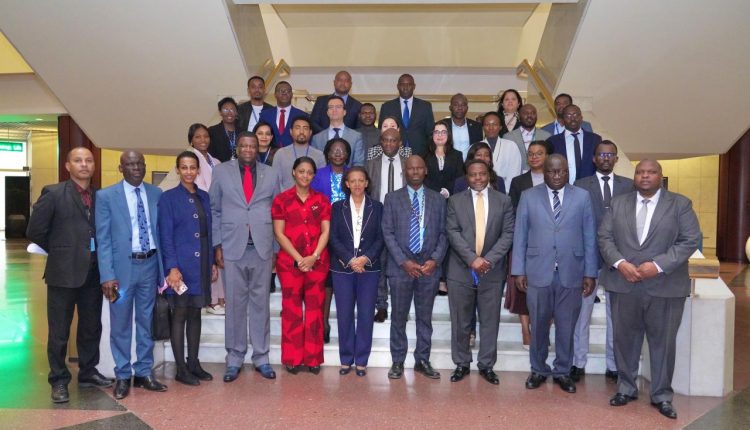Modest economic growth projected in Africa in 2025 and 2026 – UN report
Addis Ababa, February 2, 2025 (FMC) – Economic growth in Africa is projected to expand moderately over 2025 and 2026, driven by recovery in the largest economies in the continent. However, balance of payments constraints, shrinking fiscal space, lingering debt sustainability risks, and climate disasters limit growth prospects, according to the UN World Economic Situation and Prospects (WESP) 2025.
This was disclosed during launch of the UN World Economic Situation and Prospects (WESP) 2025 which was held this week in Addis Ababa, Ethiopia, in the presence of diplomats and economic experts.
The UN flagship economic report projects that global economic growth is set to remain at 2.8 per cent in 2025, unchanged from 2024. While the global economy has demonstrated resilience amid a series of mutually reinforcing shocks, growth remains below the pre- pandemic average of 3.2 per cent, constrained by weak investment, sluggish productivity, and high debt levels.
The report notes that lower inflation and ongoing monetary easing in many economies could provide a modest boost to global economic activity in 2025. However, uncertainty still looms large, with risks stemming from geoeconomic tensions, lack of fiscal space and elevated borrowing costs in many parts of the world.

Economic growth in Africa is projected to strengthen from an estimated 3.4 per cent in 2024 to 3.7 per cent in 2025 and 4.0 per cent in 2026. The expansion reflects improving conditions such as easing supply bottlenecks and strong recovery in international tourism.
The trade outlook for Africa reflects divergent trends. South Africa’s persistent power shortages have constrained manufacturing exports. Surging gold prices have strengthened the positions of major producers Ghana and South Africa. However, projected downward trends in global commodity prices threaten resource-dependent African economies. Despite the African Continental Free Trade Area’s (AfCFTA) advancement through new protocols, implementation hurdles remain. Tourism continues its recovery, with arrival numbers approaching pre-pandemic levels, thanks to 7 per cent growth rate in 2024.
Africa has been facing the intensifying impacts of climate change, with widespread extreme weather events in 2024. Droughts have exacerbated not only food insecurity but also access to hydropower in several regions. Given this dire situation, the need for Africa to adapt to climate change is widely recognized, and extensive climate adaptation efforts are being undertaken across the continent.
The report highlights the potential of critical minerals for the energy transition—such as lithium, cobalt, and rare earth elements—and also for accelerating progress towards the SDGs in many countries.
For resource-rich developing countries, including several in Africa, rising global demand for critical minerals presents a unique opportunity to boost growth, create jobs, and increase public revenues for investment in sustainable development. However, the report warns that these opportunities come with significant risks. Poor governance, unsafe labour practices, environmental degradation, and over-reliance on volatile commodity markets could exacerbate inequalities and harm ecosystems, undermining long-term development gains.

During WESP 2025 launch in Addis Ababa, experts shared thoughts and debate on the outlook report.
By Mesafint Brlie

